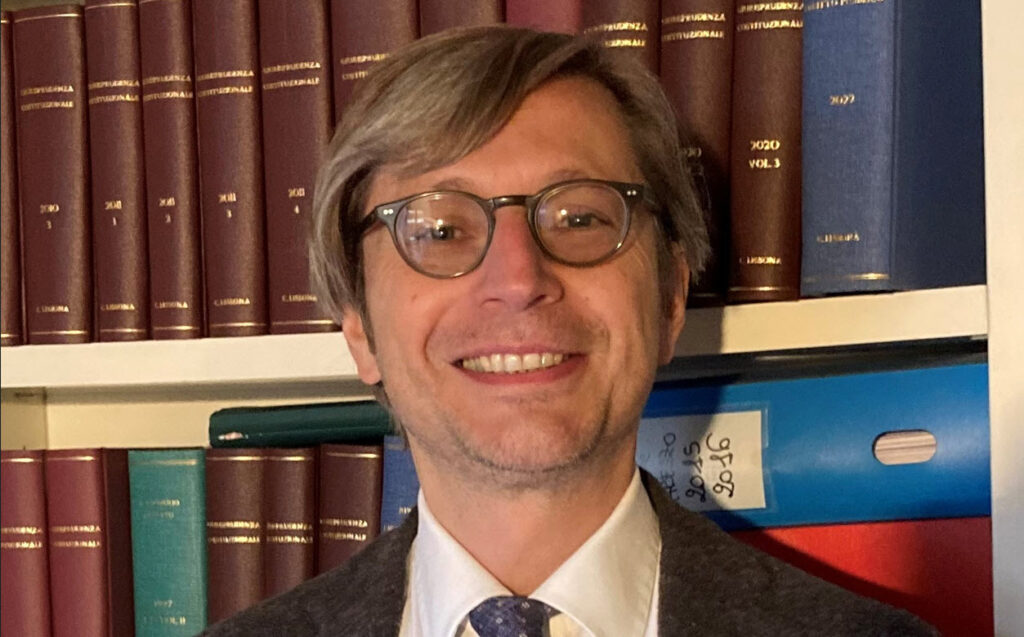At a time when constitutional crises and security concerns dominate the global discourse, Prof. Mario Perini, a constitutional law expert at the University of Siena, has emerged as a leading figure in advancing academic collaboration on these critical issues. Through the International Mobility Program—Assessing Constitutional Crisis Impact and Security (IMP-ACCTS), Perini has united institutions across Italy, Israel, and the Balkans to address these challenges from an interdisciplinary and international perspective.
A Personal Mission to Foster Collaboration
For Prof. Perini, IMP-ACCTS is more than just a project; it is the culmination of his career-long commitment to advancing constitutional law and human rights. “The program arose from the recognition that constitutional crises and security are increasingly interconnected issues,” he explains. “Tackling them requires academic expertise and cross-border collaboration to share diverse perspectives.”

Perini emphasizes the transformative role of education and research, particularly in bridging divides and addressing global challenges. “I have a strong belief in the power of education and research as essential tools for addressing the complex social, cultural, legal, and scientific challenges we face today,” he reflects.
In his view, initiatives like IMP-ACCTS represent the potential of academia to foster understanding and cooperation across differences. “In a world increasingly defined by division, initiatives like this highlight the transformative potential of dialogue, mutual respect, and shared purpose. By promoting joint research and mobility, we are constructing bridges between countries, disciplines, and individuals—bridges that enhance dialogue, foster mutual respect, and demonstrate a collective commitment to tackling global challenges.”
Perini’s vision for the program is clear: to strengthen academic mobility while fostering deeper understanding and practical solutions for complex global challenges. His approach emphasizes building bridges between cultures and disciplines to create lasting academic and policy-oriented impacts.
Creating Opportunities Amid Complexities
Securing €2,5 million in funding for IMP-ACCTS from the Italian Ministry for University and Research required deft coordination and a clear articulation of the program’s value. “The most challenging aspect was aligning the goals of so many institutions while meeting stringent administrative requirements,” Perini admits. Yet, this effort has laid the groundwork for robust international collaboration.
The funding supports mobility initiatives and encourages the development of innovative teaching methods and multidisciplinary programs. By involving students, faculty, and staff from diverse academic backgrounds, the program ensures a comprehensive approach to issues like governance, minority rights, and data security.
Bar-Ilan University’s Vital Role
The program’s success has been bolstered by strong partnerships, particularly with Bar-Ilan University in Israel. As one of the key collaborators, Bar-Ilan has played a crucial role in shaping the program’s interdisciplinary approach and ensuring its relevance to pressing global issues. “Bar-Ilan has been one of the key partners helping to shape the program’s interdisciplinary approach and ensuring that the themes addressed are both timely and impactful,” says Perini.
This collaboration is deeply rooted in Perini’s personal experience with the institution and its values. “My familiarity with Bar-Ilan University, along with my relationships with colleagues there, and my appreciation for its openness and pluralism have played a significant role in my perspective,” he explains. By fostering this partnership, the program underscores its commitment to building bridges across cultures, institutions, and disciplines.
Daniel Schuval, Senior Advisor for Internationalization at Bar-Ilan University’s International School, echoes Perini’s sentiments regarding the unique contributions of Israeli universities. “Israeli universities bring unique perspectives informed by their experience with constitutional law in contexts of conflict and resilience. This expertise enriches our collective understanding and strengthens the program’s ability to propose effective solutions,” Schuval notes.
From Theory to Action
One of IMP-ACCTS’s distinguishing features is its emphasis on practical application. The program includes summer and winter schools designed to bridge academic theory with real-world challenges. These immersive activities expose participants to scenarios such as constitutional violations, migration, and security frameworks, encouraging critical thinking and problem-solving.
“Our aim is to develop theoretical insights as well as actionable strategies that address constitutional crises in meaningful ways,” says Perini. “By engaging with international teams and real-world case studies, participants gain invaluable skills that go beyond academia.”
A Vision for the Future
Perini’s ambitions for IMP-ACCTS extend far beyond its initial implementation. “I envision this program becoming a catalyst for ongoing international collaboration, leading to joint doctoral programs, research centers, and even public policy initiatives,” he shares.
He is also mindful of the criticisms that such collaborations can face, particularly in politically sensitive contexts. “In my view, this project must remain completely independent of government policies in any of the participating countries, as it fundamentally concerns the freedom of academic research and teaching,” Perini explains. “I believe that mobility between free higher education institutions will practically demonstrate how free research and teaching can cultivate relationships across different cultures. This approach will also serve as the most effective response to any potential negative reactions from colleagues.”
By maintaining its independence and fostering meaningful dialogue, Perini sees the program as a model for building sustainable academic networks that transcend political divisions.
Moreover, he highlights the program’s potential to influence policy discussions on constitutional security. “The research and exchanges fostered by IMP-ACCTS have implications for academia and the broader governance landscape. By connecting scholars with policymakers, we can contribute to more informed and effective responses to global challenges,” he asserts.
Legacy of Leadership
Perini’s involvement in IMP-ACCTS, from its conception to its implementation, reflects his dedication to fostering academic networks that can endure. “This program is about more than mobility; it’s about creating a sustainable foundation for addressing the shared challenges of our time,” he says.
As IMP-ACCTS continues to evolve, it is a testament to Perini’s leadership and ability to unite diverse institutions under a common mission. By focusing on collaboration, innovation, and practical solutions, Prof. Perini is shaping the future of academic engagement on constitutional crises and security.
Contact Us for More Info
Leave your details and we’ll get back to you soon

